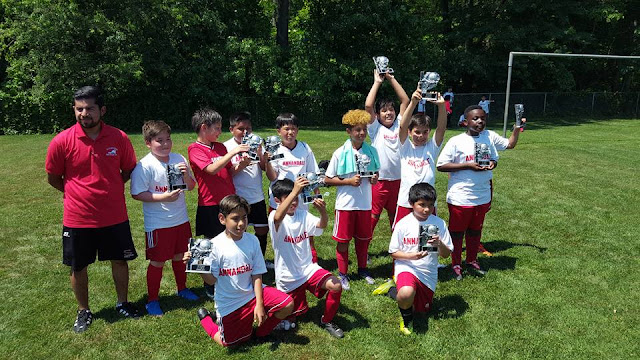Learning from Soccer: How to Improve Instruction
My son belongs to a soccer team that just won first place in their group in the Suburban Friendship League in Northern Virginia. Their team also scored the second highest number of goals, forty six in ten games, in the entire division. Armed only with skills and even talent can only bring a soccer team halfway to winning a game. Good positions and good decisions, and therefore, teamwork is extremely necessary.
The coach of a soccer team needs to see the field in its entirety and so does his or her players. Every play is indeed a learning opportunity. the coach helps assess every move his or her team makes. And between games, the team goes to practice, reviewing their past games, and studying what the team may be able to improve. Focusing on the importance of maintaining good positions, creating opportunities, keeping possession, and thoughtful defending, are obviously key principles. Still, careful planning, keen observations, and thoughtful revisions as a team are still necessary to improve from one game to the next.
With the above elements in mind, basic education can actually learn a lot from soccer. First and foremost, to become better, a team sports like soccer focuses specifically at improving plays. Improving players simply becomes a side product. Unfortunately, in basic education, we often emphasize improving teachers instead of improving teaching. Hiebert and Stigler wrote in the Educational Researcher:
 |
| Annandale soccer team celebrating their victory |
With the above elements in mind, basic education can actually learn a lot from soccer. First and foremost, to become better, a team sports like soccer focuses specifically at improving plays. Improving players simply becomes a side product. Unfortunately, in basic education, we often emphasize improving teachers instead of improving teaching. Hiebert and Stigler wrote in the Educational Researcher:
We examine the distinction between teaching and teachers as it relates to instructional improvement. Drawing from work outside of education on improvement systems and from analyzing the Japanese system of lesson study, we contend that a focus on teaching can shape a coordinated system for improvement whereas a focus on teachers, common in the United States, leads to elements that are uncoordinated and often work against the continuous, steady improvement of classroom teaching.They found that lesson study in the Japanese education system contains four essential elements:
- Begin With Shared Learning Goals
- Develop Widely Used Curricula That Invite Improvement
- Produce Assessments That Provide Useable Feedback for Teachers
- Design Professional Development to Enculturate Teachers Into the System for Improvement
Looking at each of these elements brings out an overall theme of "working as a team", similar to soccer. Collaboration among teachers, researchers and administrators is key.
The school my son currently goes to, Mason Crest Elementary School, is a "A National Model Professional Learning Community at Work!" This is probably not surprising since its current principal, Brian Butler, not only played basketball at George Washington University but also played soccer in high school. We can learn important lessons from soccer, the importance of a shared goal, commitment to essential elements, useful observations and assessments, and practices that develop plays moreso than just simply developing players.
Comments
Post a Comment